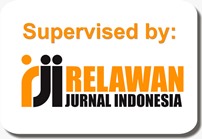PENGARUH INTELLECTUAL EXPERIENCE DAN AFFECTIVE EXPERIENCE PADA SOCIAL BRAND ENGAGEMENT DENGAN KOMITMEN SEBAGAI PEMODERASI
Abstract
Penelitian ini bertujuan untuk mengetahui pengaruh intellectual experience dan affective experience terhadap social brand engagement dengan komitmen sebagai variabel moderasi. Penelitian ini menggunakan metode kuantitatif dengan teknik purposive sampling. Sampel pada penelitian ini sebanyak 311. Metode pengumpulan data yang digunakan pada penelitian ini menggunakan kuesioner dengan menggunakan google form. Teknik analisis data dalam penelitian ini menggunakan analisis regresi linear berganda dan moderated regression analysis Hasil pada penelitian ini menunjukan bahwa intellectual experience berpengaruh pada social brand engagement. Akan tetapi affective experience tidak berpengaruh pada social brand engagement. Penelitian ini juga menunjukan bahwa komitmen tidak memoderasi hubungan intellectual experience dan affective experience terhadap social brand engagement.
Full Text:
PDF (Bahasa Indonesia)References
Altschwager, T., Dolan, R., & Conduit, J. (2018). Social brand engagement: How orientation events engage students with the university. Australasian Marketing Journal, 26(2), 83–91. https://doi.org/10.1016/j.ausmj.2018.04.004
Anderson. (1986). Hierarhical Moderated Regression Analysis: A Useful Tool For Retail Management Decisions. Journal of Retailing, 62(2), 186–203.
Baron, R., & Kenny, D. (1986). The Moderator-Mediator Variable Distinction in Social Psychological Research: Conceptual, Strategic, and Statistical Considerations. Journal of Personality and Social Pscychology, 51(6), 1173–1182. https://doi.org/10.1007/BF02512353
Brakus, J. J., Schmitt, B. H., & Zarantonello, L. (2009). Brand Experience: What Is It? How Is It Measured? Does It Affect Loyalty? Journal of Marketing, 73(3), 52–68. https://doi.org/10.1509/jmkg.73.3.52
Conduit, J., Karpen, I., & Farrelly, F. (2016). Making a difference through marketing: A quest for diverse perspectives. Making a Difference Through Marketing: A Quest for Diverse Perspectives, 1–282. https://doi.org/10.1007/978-981-10-0464-3
Cooper, D. R., & Schindler, S, P. (2011). Metode Riset Bisnis. Jakarta: Media.
Gentile, C., Spiller, N., & Noci, G. (2007). How to Sustain the Customer Experience:. An Overview of Experience Components that Co-create Value With the Customer. European Management Journal, 25(5), 395–410. https://doi.org/10.1016/j.emj.2007.08.005
Hair, J., Black, W. C., Babin, B. J., & Anderson, R. E. (2014). Multivariate Data Analysis (Seventh Ed).
Hsieh, S. H., & Chang, A. (2016). The Psychological Mechanism of Brand Co-creation Engagement. Journal of Interactive Marketing, 33, 13–26. https://doi.org/10.1016/j.intmar.2015.10.001
Hudson, S., Huang, L., Roth, M. S., & Madden, T. J. (2016). The influence of social media interactions on consumer-brand relationships: A three-country study of brand perceptions and marketing behaviors. In International Journal of Research in Marketing (Vol. 33, Issue 1). Elsevier B.V. https://doi.org/10.1016/j.ijresmar.2015.06.004
Kahu, E. R., & Nelson, K. (2018). Student engagement in the educational interface: understanding the mechanisms of student success. Higher Education Research and Development, 37(1), 58–71. https://doi.org/10.1080/07294360.2017.1344197
Kang, J., Tang, L., & Fiore, A. M. (2014). Enhancing consumer-brand relationships on restaurant Facebook fan pages: Maximizing consumer benefits and increasing active participation. International Journal of Hospitality Management, 36, 145–155. https://doi.org/10.1016/j.ijhm.2013.08.015
Kozinets, R. V. (2014). Social Brand Engagement: A New Idea. NIM Marketing Intelligence Review, 6(2), 8–15. https://doi.org/10.2478/gfkmir-2014-0091
Lemon, K. N., & Verhoef, P. C. (2016). Understanding customer experience throughout the customer journey. Journal of Marketing, 80(6), 69–96. https://doi.org/10.1509/jm.15.0420
Nysveen, H., Pedersen, P. E., & Skard, S. (2013). Brand experiences in service organizations: Exploring the individual effects of brand experience dimensions. Journal of Brand Management, 20(5), 404–423. https://doi.org/10.1057/bm.2012.31
Osei-Frimpong, K., & McLean, G. (2018). Examining online social brand engagement: A social presence theory perspective. Technological Forecasting and Social Change, 128(March 2017), 10–21. https://doi.org/10.1016/j.techfore.2017.10.010
Sharma, N., & Patterson, P. (2000). Switching costs, alternative attractiveness and experience as moderators of relationship commitment in professional consumer services. International Journal of Service Industry Management, 11(5), 470–490.
Storbacka, K., Brodie, R. J., Böhmann, T., Maglio, P. P., & Nenonen, S. (2016). Actor engagement as a microfoundation for value co-creation. Journal of Business Research, 69(8), 3008–3017. https://doi.org/10.1016/j.jbusres.2016.02.034
Sugiyono. (2017). Metode Penelitian Kuantitatif. Bandung, Alfabeta.
Sung, Y., & Campbell, W. K. (2009). Brand commitment in consumer-brand relationships: An investment model approach. Journal of Brand Management, 17(2), 97–113. https://doi.org/10.1057/palgrave.bm.2550119
Tinto, V. (1975). Dropout from Higher Education: A Theoretical Synthesis of Recent Research. Review of Educational Research, 45(1), 89–125. https://doi.org/10.3102/00346543045001089
Tuškej, U., Golob, U., & Podnar, K. (2013). The role of consumer-brand identification in building brand relationships. Journal of Business Research, 66(1), 53–59. https://doi.org/10.1016/j.jbusres.2011.07.022
Utomo, P. (2006). “ Memberi Bobot Arah Orientasi Pembinaan Mahasiswa .” November, 1–8.
Wirtz, J., Aksoy, L., van Riel, A., Kandampully, J., Den Ambtman, A., Bloemer, J., Horváth, C., Ramaseshan, B., Van de Klundert, J., & Gurhan Canli, Z. (2013). Managing brands and customer engagement in online brand communities. Journal of Service Management, 24(3), 223–244. https://doi.org/10.1108/09564231311326978
Zarantonello, L., & Schmitt, B. H. (2010). Using the brand experience scale to profile consumers and predict consumer behaviour. Journal of Brand Management, 17(7), 532–540. https://doi.org/10.1057/bm.2010.4
DOI: https://doi.org/10.31846/jae.v10i1.439
Refbacks
- There are currently no refbacks.

This work is licensed under a Creative Commons Attribution-NonCommercial-NoDerivatives 4.0 International License.
e-Jurnal Apresiasi Ekonnomi Indexed by:












